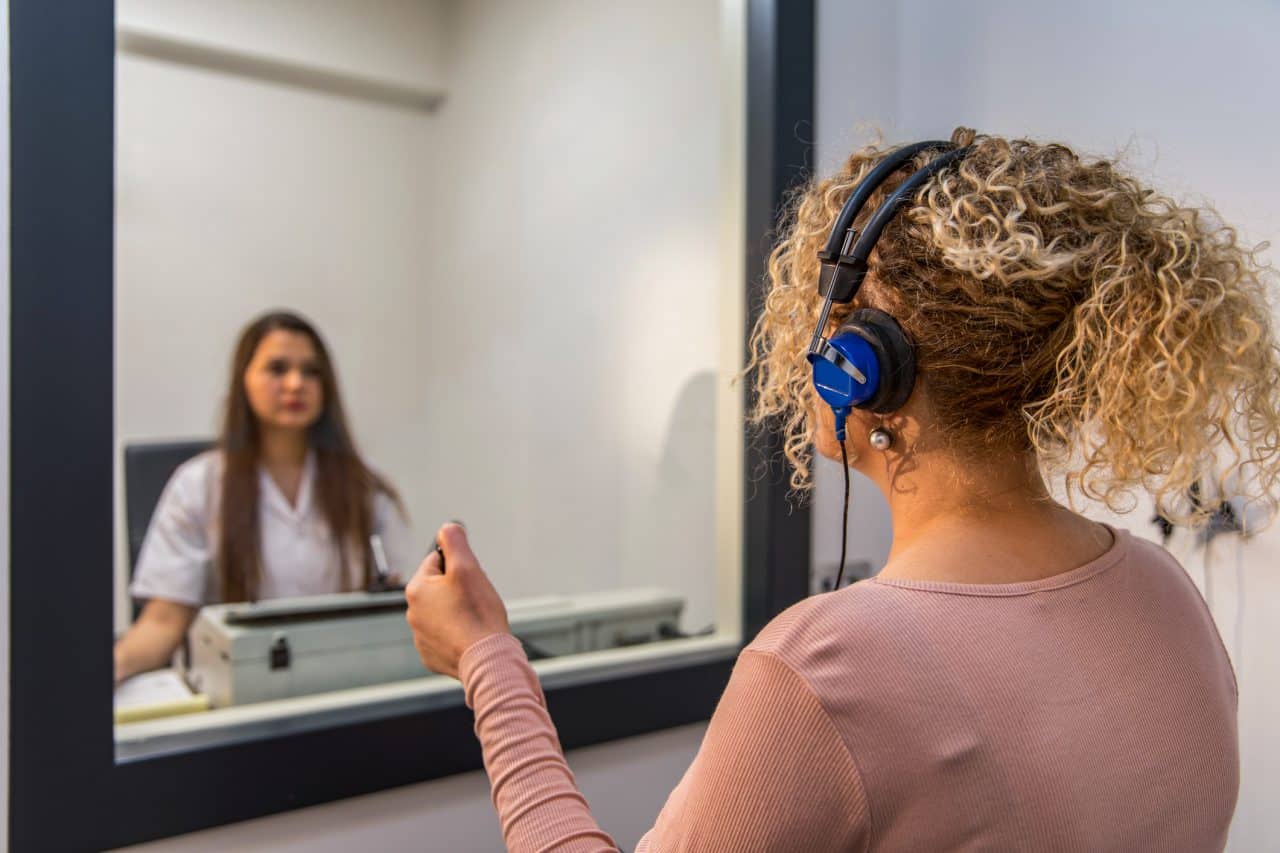According to a 2019 article published in American Family Physician, “Hearing loss is categorized as conductive, sensorineural, or mixed.” The purpose of this post is to focus on conductive and sensorineural hearing loss – specifically, how they differ.
What Is Conductive Hearing Loss?

Conductive hearing loss is caused by a problem with the outer or middle ear.
Some problems with the outer ear that can cause conductive hearing loss include:
- Earwax impaction
- Swimmer’s ear (otitis externa)
- Foreign object in the ear
- Narrowing of the ear canal (stenosis)
- Bony growths in the ear canal (exostoses)
- Underdeveloped outer ear
Problems with the middle ear that can contribute to conductive hearing loss include:
- Ruptured eardrum
- Thickening of the eardrum (tympanosclerosis)
- Middle ear infection (otitis media)
- Blockage of the Eustachian tube
- Abnormal bone growths in the middle ear (otosclerosis)
- Ossicular chain discontinuity
- Tumors in the middle ear (cholesteatoma)
How Is Conductive Hearing Loss Treated?
In many cases, conductive hearing loss can be treated by addressing the underlying problem. For example, earwax can be professionally cleaned out, infections can be treated with antibiotics, tumors can be removed and congenital abnormalities can be surgically corrected.
In cases where the underlying cause cannot be fixed, standard hearing aids or bone-anchored hearing aids (BAHAs) may be prescribed. Hearing aids work by amplifying sounds to a level the ear can detect. BAHAs work by transmitting sound through the skull bone rather than through the ear, bypassing the outer and middle ear.
What Is Sensorineural Hearing Loss?
Sensorineural hearing loss is caused by a problem within the inner ear.
Some of the causes of sensorineural hearing loss include:
- Advancing age (presbycusis)
- Noise exposure
- Heart disease
- Diabetes
- Certain infections
- Meniere’s disease
- Ototoxic medications
- Acoustic neuroma
- Brain injuries
- Autoimmune disease
How Is Sensorineural Hearing Loss Treated?
Sensorineural hearing loss is irreversible and cannot be medically corrected. Because of this, the gold standard of treatment is hearing aids. If the hearing loss is severe or profound, cochlear implants may be prescribed instead. Cochlear implants bypass the damaged parts of the inner ear and directly stimulate the cochlea.
For more information or to schedule an appointment with a hearing expert, call Speech & Hearing Associates today.